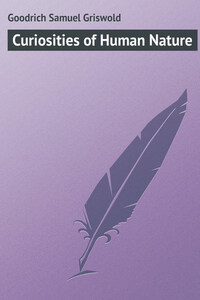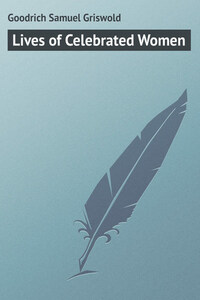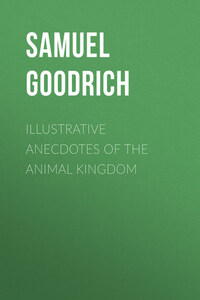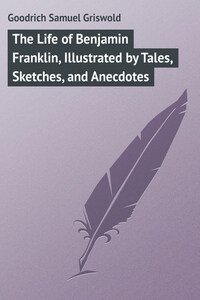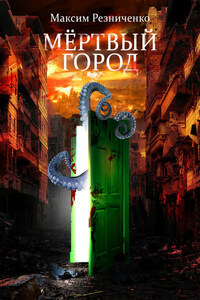Among the intellectual prodigies which sometimes appear to excite the wonder and astonishment of mankind, Zerah Colburn was certainly one of the most remarkable. He was born at Cabot, Vermont, Sept. 1st, 1804. He was the sixth child of his parents, who were persons in low circumstances and of little education. He was regarded as the most backward of the children till he was about six years old, when he suddenly attracted attention by the display of his astonishing powers.
In August, 1810, when his father, Abia Colburn, was one day employed at a joiner's work-bench, Zerah was on the floor, playing among the chips; suddenly, he began to say to himself, – 5 times 7 are 35 – 6 times 8 are 48, &c. His father's attention was immediately arrested by hearing this, so unexpected in a child so young, and who had hitherto possessed no advantages, except perhaps six weeks' attendance at the district school, that summer. He therefore left his work, and turning to the child, began to examine him in the multiplication table. He thought it possible that Zerah had learnt this from the other boys; but finding him perfect in the table, his attention was more deeply fixed, and he asked the product of 13×97, to which 1261 was instantly given as the answer. He now concluded that something unusual had actually taken place; indeed, he has often said he should not have been more surprised if some one had risen up out of the earth and stood erect before him.
It was not long before a neighbor rode up, and stopping at the house, was informed of the singular occurrence. He desired to be a witness of the fact. Zerah was called, and the result of the examination astonished every one present. The strange phenomenon was now rapidly spread throughout the town. Though many were inclined to doubt the correctness of the reports they heard, a personal examination attested their truth. Thus the story originated, which within the short space of a year found its way not only through the United States, but also reached Europe, and extorted expressions of wonder from foreign journals of literature and science in England, France and other countries.
Very soon after the discovery of his remarkable powers, many gentlemen, at that time possessing influence and public confidence throughout the state, being made acquainted with the circumstances, were desirous of having such a course adopted as might most directly lead to a full development of Zerah's talents, and their application to purposes of general utility. Accordingly, it was proposed that Mr. Colburn should carry his son to Danville, to be present during the session of the court. This was done, and the boy was very generally seen and questioned by the judges, members of the bar, and others.
The legislature of Vermont being about to convene at Montpelier, Mr. Colburn was advised to visit that place with his son, which they did in October. Here large numbers had an opportunity of witnessing his calculating powers, and the conclusion was general that such a thing had never been known before. Many questions, which were out of the common limits of arithmetic, were proposed, with a view to puzzle the child, but he answered them correctly; as, for instance, – which is the most, twice twenty-five, or twice five and twenty? Ans. Twice twenty-five. Which is the most, six dozen dozen, or half a dozen dozen? Ans. Six dozen dozen. Somebody asked him how many black beans would make five white ones. Ans. Five, if you skin them! Thus it appeared that the boy could not only compute and combine numbers readily, but that he also possessed a quickness of thought, somewhat uncommon among children, as to other things.
Soon after this, Mr. Colburn took his son to other large towns, and at last to Boston. Here the boy excited the most extraordinary sensation, and several gentlemen of the highest standing proposed to undertake his education. The terms, though very liberal, were not equal to the high-raised expectations of the father. The offer was therefore refused, and Mr. Colburn proceeded to the southern cities, exhibiting his son in public, his performances everywhere exciting the utmost wonder.
The author of these pages had an opportunity of seeing Zerah Colburn, at this period. He was a lively, active boy, of light complexion, his head being rather larger than that of boys generally at his age. He was then six years old, and had the manners common to children of his age. He was playful, even while performing his calculations. The quickness and precision with which he gave answers to arithmetical questions was amazing. Among those proposed to him at Boston, in the autumn of the year 1810, were the following:
What is the number of seconds in 2000 years? The answer, 63,072,000,000, was readily and accurately given. Another question was this: Allowing that a clock strikes 156 times in a day, how many times will it strike in 2000 years? The child promptly replied, 113,800,000 times.
What is the product of 12,225, multiplied by 1,223? Ans. 14,951,175. What is the square of 1,449? Ans. 2,099,601. Suppose I have a corn-field, in which are seven acres, having seventeen rows to each acre, sixty-four hills to each row, eight ears on a hill, and one hundred and fifty kernels on an ear; how many kernels in the corn-field? Ans. 9,139,200.
